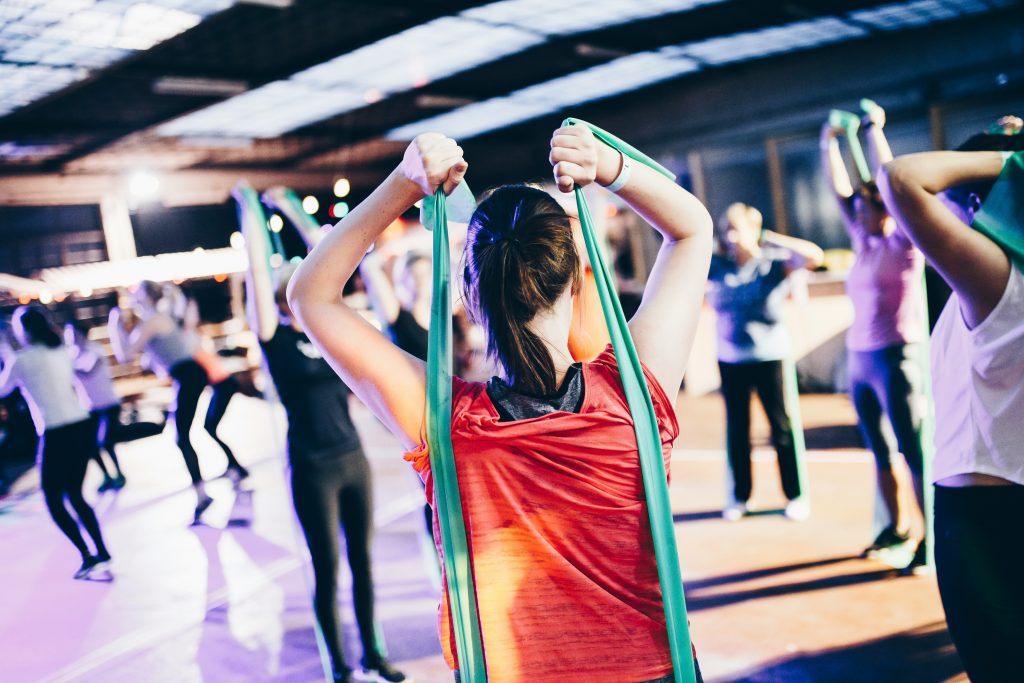When it comes to elevating mental well-being, exercise has rightfully earned its place as one of the most potent tools at your disposal. While you may view working out primarily as a means to sharpen physical conditioning, it also furnishes an astonishing spectrum of cognitive benefits for your mind.
Euphoria-Inducing Endorphins
One of the most fascinating dimensions is how physical activity directly influences the physiology of the brain. Exercise amplifies blood flow to the brain, driving enhanced oxygen and nutrient delivery. This bolsters neuroplasticity – the brain’s capacity to construct new neural circuitry vital for learning and recollection. You’re not only honing your muscles but also optimizing the architecture of your brain.
Now, let’s discuss those magical endorphins – the body’s intrinsic mood-boosting elixirs. These are neurotransmitters discharged when you exercise that serve almost like innate antidepressants.
Endorphins bind to receptors in your brain that mitigate pain and discomfort, eliciting feelings of elation and overarching contentment. This phenomenon is colloquially dubbed “runner’s high,” but you needn’t be a marathoner to relish it.
Even moderate exertion can set off an endorphin cascade, lending a helpful hand against dour moods and uplifting your emotional state.

But the mental health upsides of exercise extend far beyond mood enhancement. Physical activity is supremely effective at taming stress and angst. As you partake in exercise, your body additionally revs up generation of other neurotransmitters like serotonin and dopamine that are indispensable in governing emotions and unwinding stress.
Exercise also directly addresses decreasing levels of stress hormones like adrenaline and cortisol in the body.
Envision the sense of empowerment you’ll derive from being actively engaged! This constitutes a game-changing variable for your mental wellbeing, furnishing an underpinning of resilience to tackle everyday strains and long-term challenges. And wonderfully, these fruits are available for all, irrespective of one’s fitness standing.
Whether you’re a gym die-hard or prefer leisurely ambles along the park, the capacity to energize your mental health lies at your fingertips – or more fittingly, at the ends of your legs.
Tailoring Training for Mental Health
Believe it or not, the connection between your mental health and the types of exercise you engage in is far more intimate than you imagine. Different workout modalities uniquely influence mental states, furnishing you an assortment of options to cater to specific psychological needs. Let’s explore what each has to offer.
Yoga
Physical Benefits: Improves flexibility, balance, and muscle strength.
Mental Health Impact: Yoga practices are deeply rooted in mindfulness. They aid activation of your parasympathetic nervous system, often called the “rest and digest system”, assisting to alleviate stress and anxiety.
Our Advice: If you’re looking for a low-impact yet sweat-inducing calming workout, aim for at least 20-30 minutes of practice twice per week.

Meditation
Physical Benefits: Though not strenuous, aids lowering blood pressure and enhancing heart rate variability.
Mental Health Impact: These practices encourage you to focus on the present moment, reducing mental clutter associated with stress, depression and anxiety. Studies show regular meditation can reshape brain areas related to emotional regulation.
Our Advice: If new to meditation, start with just 5 minutes daily, gradually increasing duration as you advance.
Aerobic Exercise
Physical Benefits: Boosts cardiac and pulmonary health, burns calories, increases overall endurance.
Mental Health Impact: Engaging in cardio releases feel-good endorphins that serve as natural mood enhancers.
Our Advice: Aim for at least 150 minutes weekly of moderate intensity aerobic activity, or for a more intense adrenaline-fueled experience, opt for 60 minutes weekly of Tabata or HIIT workouts.
Strength Training
Physical Benefits: Builds muscle mass, improves bone density, elevates metabolism.
Mental Health Impact: The sense of achievement and progress associated with resistance training significantly uplifts self-esteem. Additionally, the physical exertion enhances sleep quality, pivotal for mental health.

Our Advice: For gym-savvy individuals, target 2-3 days a week of strength training. For beginners, bodyweight moves like pushups, pull-ups and squats are a great starting point, performed 2-3 days weekly. Resistance bands offer another viable option.
High Intensity Interval Training (HIIT)
Physical Benefits: Provides quick yet effective full-body conditioning, enhancing cardiovascular health and muscular endurance.
Mental Health Impact: HIIT workouts tend to skyrocket endorphin levels, swiftly soothing mood fluctuations and mild depressive states.
Our Advice: Given its intensity, HIIT is best suited for moderately fit individuals. Just 2-3 twenty minute sessions weekly are plenty.
Pilates
Physical Benefits: Strengthens the core, elevates flexibility, refines posture.
Mental Health Impact: The focused breathing and smooth flowing motions have a calming effect on the psyche.
Our Advice: This is another low-impact option well-suited for beginners, those with joint issues, and individuals seeking more mindful movement. 1-2 sessions weekly delivers benefits.



+ There are no comments
Add yours